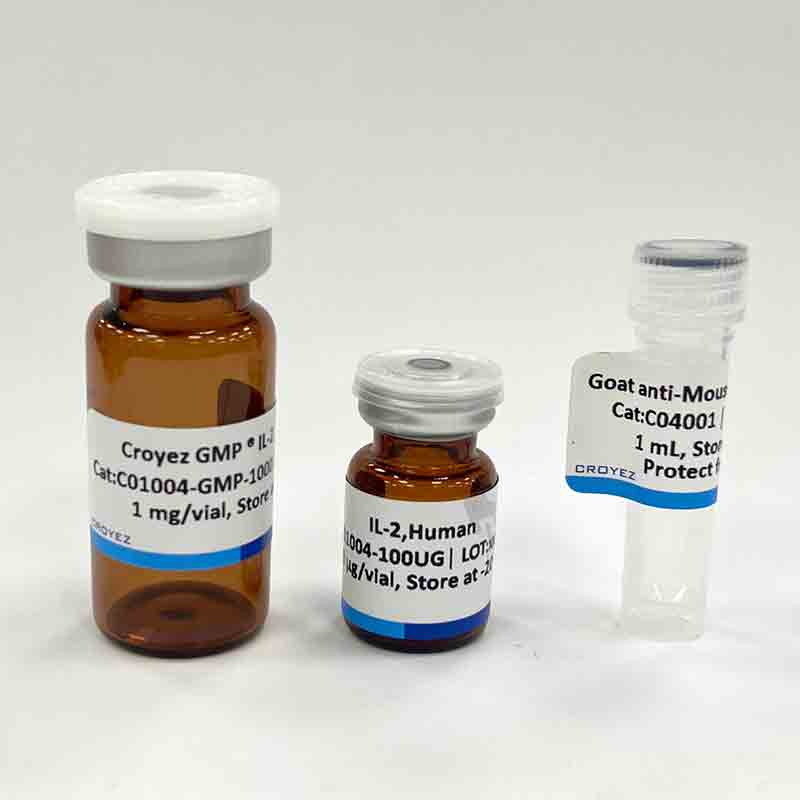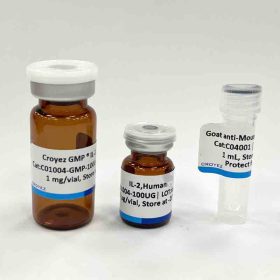Interleukin-28 (IL-28) is a cytokine that comes in two isoforms, IL-28A and IL-28B, and plays a role in immune defense against viruses, including the induction of an “antiviral state” by turning on Mx proteins, 2′,5′-oligoadenylate synthetase as well as ISGF3G (Interferon Stimulated Gene Factor 3). IL-28A and IL-28B belong to the type III interferon family of cytokines and are highly similar (in amino acid sequence) to IL-29. Their classification as Interferons is due to their ability to induce an antiviral state, while their additional classification as cytokines is due to their chromosomal location as well as the fact that they are encoded by multiple exons, as opposed to a single exon, as most type-I IFNs are.
Sequence:
MDPVPRATRLPVEAKDCHIAQFKSLSPKELQAFKKAKGAIEKRLLEKDMRCSSHLISRAWDLKQLQVQERPKALQAEVALTLKVWENINDSA
LTTILGQPLHTLSHIHSQLQTCTQLQATAEPKPPSRRLSRWLHRLQEAQSKETPGCLEDSVTSNLFQLLLRDLKCVASGDQCV with polyhistidine tag at the C-terminus
Source:
Escherichia coli
Endotoxin Test:
<0.1 EU per 1 μg of the protein by the LAL method.
Activity:
Measure by its ability to protect HepG2 cells infected with encephalomyocarditis (EMC) virus. The ED50 for this effect is <20 ng/mL.
Purity:
>98% as determined by SDS-PAGE. Ni-NTA chromatography
Formulation:
The protein was lyophilized from a solution containing 1X PBS, pH 7.4.
Reconstitution:
It is recommended to reconstitute the lyophilized protein in sterile H2O to a concentration not less than 100 μg/mL and incubate the stock solution for at least 20 min to ensure sufficient re-dissolved.
Storage:
Lyophilized protein should be stored at -20°C. Upon reconstitution, protein aliquots should be stored at -20°C or -80°C.
Note:
Please use within two weeks after protein reconstitution.





